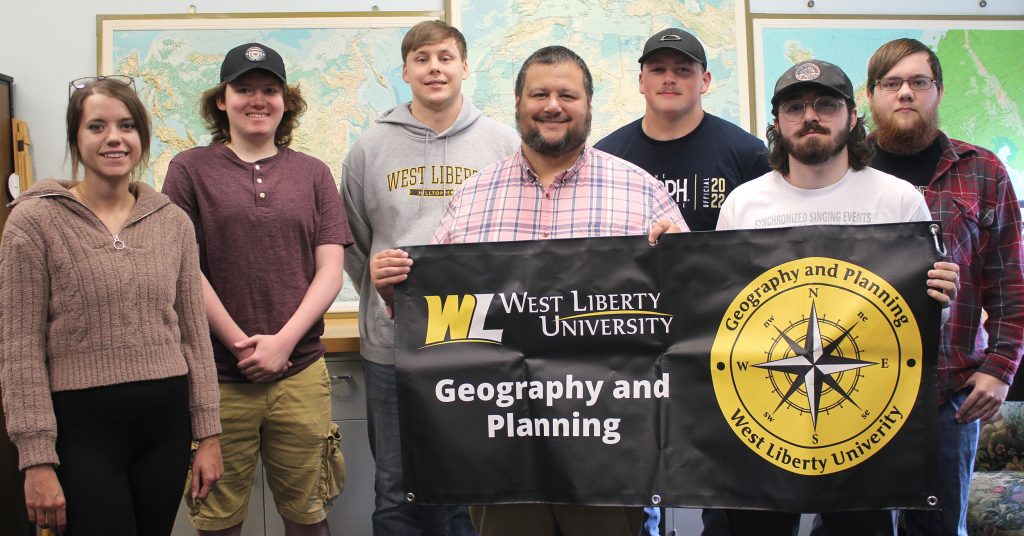Above, from left: Students Ashliegh Strickland, Jonathan Wynn, Justin Schrack, Gage Fiore, Dalton Mattern and Sailor Thompson are shown with Professor Aron Massey (center).
West Liberty Liberty geography and planning students are gaining real-life experience by working on urban renewal in nearby Wellsburg, W.Va. this semester. The project’s goal is to develop a plan for the Brooke Glass site, which is owned by the Business Development Corporation (BDC) of the Northern Panhandle.
Formerly the home to Brooke Glass, a manufacturer operating from the 1890s until 2006, the 18,000 square foot building is structurally sound and is ready for community driven redevelopment plans. Over the summer, the students acquired blueprints, catalogs and artifacts from the former glass company, along with reports from environmental assessment studies and community shareholder meetings to get started.
“Now, during our fall semester, West Liberty students in this required 3-credit course are working with our community partners such as the BDC and the URA (Urban Redevelopment Authority) to expand the community input and put into practice their course concepts by producing a realistic plan for the site’s redevelopment,” explained Aaron Massey, assistant professor of Geography and Planning who instructs the upper-level class.
The work is being funded in part thanks to a $5,000 grant awarded by the Appalachian Regional Commission in support of its mission of Appalachian teaching and education.
“We are grateful to the commission for supporting our students in this work as they learn first-hand the methods and tools of urban renewal,” said Massey.
The grant award also will allow students to present their collaborative work to multiple groups, at the ATP conference in Washington DC, and at the Appalachian Studies Conference next spring.
Right now, the students are holding focus groups with community stakeholders and meeting with officials from the BDC and URA now, as they cultivate an understanding of the planning principles required to address the challenges found in de-industrializing regions.
Goals pertaining to the student’s learning experience include being able to understand the role and requirements of a planner in an urban redevelopment setting, learning to cooperate with stakeholders to address the needs of the community and acquiring skills required to produce a comprehensive plan.
“We believe that the project goals will be met with this student-led project while students will see the tangible benefits to communities resulting from their work,” Massey said.
The geography and planning major is housed in the College of Liberal and Creative Arts, led by Dean Dr. Cecilia Konchar Farr, which offers 19 undergraduate programs, one master degree program, 20 minors, and countless opportunities for students to express their creative side and broaden their critical thinking.
